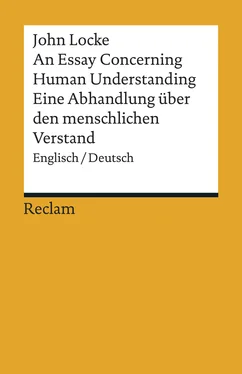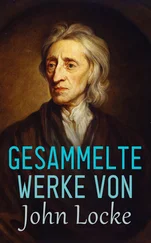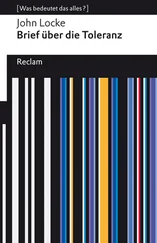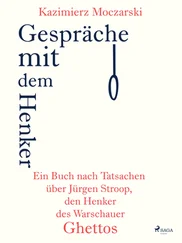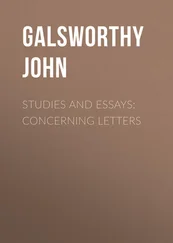§ 8. […] even large and abstract Ideas are derived from Sensation, or Reflection, being no other than what the Mind, by the ordinary use of its own Faculties, employed about Ideas , received from Objects of Sense, or from the Operations it observes in it self about them, may, and does attain unto. This I shall endeavour to shew in the Ideas we have of Space , Time , and Infinity , and some few other, that seem the most remote from those Originals.
Of simple Modes; and first, of the simple Modes of Space
§ 1. THOUGH in the foregoing part, I have often mentioned simple Ideas , which are truly the Materials of all our Knowledge; yet having treated of them there, rather in the way that they come into the Mind, than as distinguished from others more compounded, it will not be, perhaps, amiss to take a view of some of them again under this Consideration, and examine those different Modifications of the same Idea; which the Mind [180]either finds in things existing, or is able to make within it self, without the help of any extrinsical Object, or any foreign Suggestion.
Those Modifications of any one simple Idea (which, as has been said, I call simple Modes ) are as perfectly different and distinct Ideas in the Mind, as those of the greatest distance or contrariety. For the Idea of Two , is as distinct from that of One , as Blueness from Heat , or either of them from any Number: and yet it is made up only of that simple Idea of an Unite repeated; and Repetitions of this kind joined together, make those distinct simple Modes , of a Dozen , a Gross , a Million .
[…]
§ 3. […] Space considered barely in length between any two Beings, without considering any thing else between them, is called Distance : If considered in Length, Breadth, and Thickness, I think, it may be called Capacity : The term Extension is usually applied to it, in what manner soever considered.
§ 4. Each different distance is a different Modification of Space, and each Idea of any different distance , or Space , is a simple Mode of this Idea. Men for the use, and by the custom of measuring, settle in their Minds the Ideas of certain stated lengths, such as are an Inch , Foot , Yard , Fathom , Mile , Diameter of the Earth , etc . which are so many distinct Ideas made up only of Space. […]
§ 5. There is another Modification of this Idea , which is nothing but the Relation which the Parts of the Termination of [182]Extension, or circumscribed Space have amongst themselves. This the Touch discovers in sensible Bodies, whose Extremities come within our reach; and the Eye takes both from Bodies and Colours, whose Boundaries are within its view […]; that Idea we call Figure, which affords to the Mind infinite Variety. […]
[…]
§ 7. Another Idea coming under this Head, and belonging to this Tribe, is that we call Place . As in simple Space, we consider the relation of Distance between any two Bodies, or Points; so in our Idea of Place , we consider the relation of Distance betwixt any thing, and any two or more Points, which are considered, as keeping the same distance one with another, and so considered as at rest; for when we find any thing at the same distance now, which it was Yesterday from any two or more Points, which have not since changed their distance one with another, and with which we then compared it, we say it hath kept the same Place : But if it hath sensibly altered its distance with either of those Points, we say it hath changed its Place. […]
[…]
§ 11. There are some that would persuade us, that Body and Extension are the same thing ; […] If […] they mean by Body and Extension the same , that other People do, viz . by Body something that is solid, and extended, whose parts are separable and movable different ways; and by Extension, only the Space that lies between the Extremities of those solid coherent Parts, and which is possessed by them, they confound very different Ideas one with another. […] ’Tis true, Solidity cannot exist [184]without Extension, neither can Scarlet-Colour exist without Extension; but this hinders not, but that they are distinct Ideas . Many Ideas require others as necessary to their Existence or Conception, which yet are very distinct Ideas . Motion can neither be, nor be conceived without Space; and yet Motion is not Space, nor Space Motion: Space can exist without it, and they are very distinct Ideas ; and so, I think, are those of Space and Solidity. […] Body then and Extension , ’tis evident, are two distinct Ideas . For,
§ 12. First , Extension includes no Solidity, nor resistance to the Motion of Body , as Body does.
§ 13. Secondly , The Parts of pure Space are inseparable one from the other; so that the Continuity cannot be separated, neither really, nor mentally. For I demand of any one, to remove any part of it from another, with which it is continued, even so much as in Thought. To divide and separate actually, is, as I think, by removing the parts one from another, to make two Superficies, where before there was a Continuity: And to divide mentally, is to make in the Mind two Superficies, where before there was a Continuity, and consider them as removed one from the other; which can only be done in things considered by the Mind, as capable of being separated; and by separation, of acquiring new distinct Superficies, which they then have not, but are capable of: But neither of these ways of Separation, whether real or mental, is, as I think, compatible to pure Space .
[186]’Tis true, a Man may consider so much of such a Space , as is answerable or commensurate to a Foot, without considering the rest; which is indeed a partial Consideration […]. But a partial consideration is not separating. A Man may consider Light in the Sun, without its Heat; or Mobility in Body without its Extension, without thinking of their separation. One is only a partial Consideration, terminating in one alone; and the other is a Consideration of both, as existing separately.
§ 14. Thirdly , The parts of pure Space , are immovable, which follows from their inseparability; Motion being nothing but change of distance between any two things: But this cannot be between Parts that are inseparable; which therefore must needs be at perpetual rest one amongst another.
Thus the determined Idea of simple Space distinguishes it plainly, and sufficiently from Body; since its Parts are inseparable, immovable, and without resistance to the Motion of Body.
[…]
§ 16. Those who contend that Space and Body are the same , bring this Dilemma : Either this Space is something or nothing; if nothing be between two Bodies, they must necessarily touch; if it be allowed to be something, they ask, whether it be Body or Spirit? To which I answer by another Question, Who told them, that there was, or could be nothing, but solid Beings, which could not think; and thinking Beings that were not extended? Which is all they mean by the terms Body and Spirit .
[188]§ 17. If it be demanded (as usually it is) whether this Space void of Body , be Substance or Accident , I shall readily answer, I know not: nor shall be ashamed to own my Ignorance, till they that ask, shew me a clear distinct Idea of Substance .
Читать дальше
